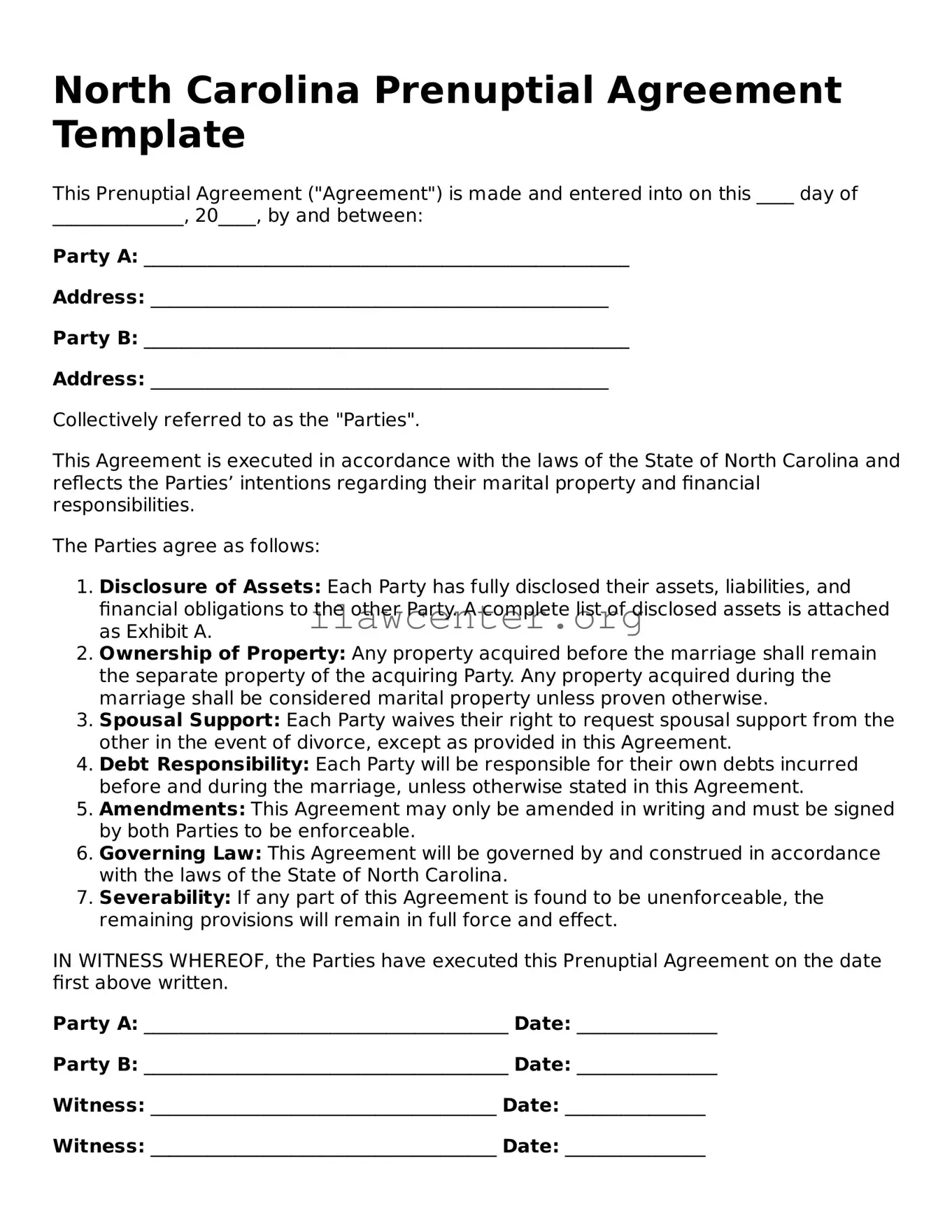Instructions on Utilizing North Carolina Prenuptial Agreement
Filling out the North Carolina Prenuptial Agreement form requires careful attention to detail. It is essential to provide accurate information and ensure that all parties involved understand the terms being established. Below are the steps to guide you through the process of completing this important document.
- Begin by obtaining the official North Carolina Prenuptial Agreement form. You may find this through legal websites or a family law attorney.
- At the top of the form, write the full names of both parties. Make sure the names are spelled correctly and match the names on official identification.
- Next, provide the current addresses of both individuals. This should include the city, state, and ZIP code.
- Indicate the date of the intended marriage. This information should be placed in the designated section of the form.
- Detail any assets each party brings into the marriage. This includes property, bank accounts, investments, and valuable personal items. Clearly list these assets with descriptions.
- Include any debts each party has, such as loans, credit card debts, or other financial obligations. Be specific about the type and amount of each debt.
- Discuss and document any provisions regarding spousal support or alimony, should separation or divorce occur. Clearly outline the terms if any are agreed upon.
- Both parties should sign and date the form in the designated signature areas. If required, consider having a witness present during this process.
- Finally, ensure that the completed agreement is notarized. This step is essential to validate the document in North Carolina.
Following these steps will help ensure that the form is filled out correctly. After completing the agreement, it is advisable to keep a copy for personal records and consider consulting with a legal professional to review the document for completeness and accuracy.
